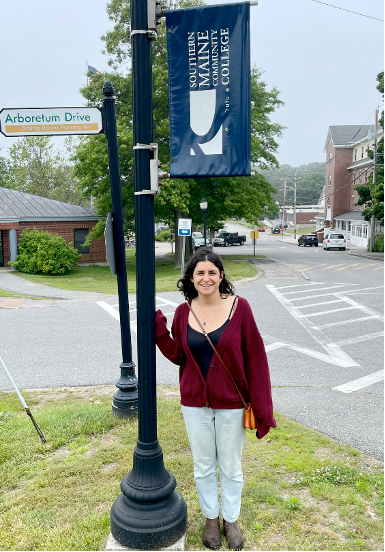UBC Sociology’s graduate program has been a crucial stepping stone throughout many students’ intellectual and academic journeys. This program provides the education, experience, and mentorship necessary for preparing students for both academic positions and professional pursuits outside the academy.
In this series of interviews, recent alumni share their experiences in UBC’s graduate program and their life after graduation.
Julia Goldman-Hasbun is recent alum who earned her PhD at UBC Sociology. After finishing her doctoral dissertation, she will be starting an academic teaching position in the Southern Maine Community College’s sociology department this fall.
What were your most memorable experiences in the graduate program at UBC Sociology?
My most memorable experiences came from participating in classes, seminars, job talks, reading groups, and workshops that exposed me to a wide range of sociological theories and methodologies. Engaging in conversations with my fellow graduate students allowed me to broaden my perspectives, challenge some of my preconceived notions, and develop my critical thinking skills. The environment is very intellectually stimulating, and it was exciting to be exposed to so many new ideas. I feel that I’ve grown a lot as a scholar and as an individual through the program and the mentorship I received.
I also really enjoyed the sense of community within the UBC department. Although I spent most of my Ph.D. away from Vancouver, I always felt supported by the faculty, staff, and graduate students in the department. I will cherish all the memories I made and I have made life-long friends in the process.
What are you looking forward to the most about working with a PhD?


A photo of Julia Goldman-Hasbun at Southern Maine Community College, where she will be teaching this fall.
I will be teaching at a community college in the fall and look forward to sharing my excitement for sociology with my students. My Ph.D. helped me develop a deep knowledge of sociological concepts and the research process, which will inform how I teach and mentor my students. Additionally, my dissertation specifically focused on the free speech and hate speech debate on university campuses, so I am excited to continue working in higher education and use the knowledge I’ve gained through my research to foster a good learning environment.
Additionally, I’m excited to continue working on research projects, for example, turning my PhD into a book or finding collaborators for new projects.
What advice do you have for future UBC sociology graduate students who aspire for an academic position?
1: Choose a research topic/area that genuinely excites and motivates you, even if it seems challenging.
Academic positions require a lot of dedication and perseverance, so having a passion for your research area is key to sustaining your interest and drive throughout graduate school and beyond.
2: Take a lot of organized notes when writing and use “freewriting” and creativity exercises (e.g., drawing diagrams) when writing.
I swear by Evernote: I kept detailed notes from all my readings, classes, seminars, research interviews, etc., in Evernote.
These notes helped me a lot once I had to get down to writing my comp exams and dissertation. Rigorous note-taking is also a great way to make connections between ideas and process the tremendous amount of information you need to digest in graduate school.
I also find freewriting and creativity exercises useful in the initial stages of writing or when you feel stuck — plus, they’re much more fun than banging your head against the computer!
3: Take care of your mental health and try to maintain a good work-life balance.
That looks different for everyone, but some things that have worked for me include trying not to work after 5 pm on weekdays and on the weekends, moving my body every day, and engaging in other hobbies and social activities that get me into a different headspace. Walking also helps you think more clearly so you can come back to your work with fresh eyes.
4: Remind yourself that, while there are many things you can do to improve your chances of landing a research-focused academic job (e.g., networking, publishing), some of it is out of your control.
It’s good to keep an open mind about other options, such as teaching jobs and research jobs outside the academy.
At the beginning of my Ph.D., I hadn’t even considered the possibility of working at a community college, but now I am so excited to start my new job, as it will allow me to have an impact on students, be close to my family and friends, live in a beautiful city (Portland, Maine), and have a more relaxed lifestyle. There are many other factors that you should consider when pursuing an academic job, which often requires some sacrifices related to location, relationships, and lifestyle. Keeping an open-minded and easygoing attitude also helps with #3.
Congratulations Dr. Goldman-Hasbun on your new teaching position at Southern Maine Community College – UBC Sociology is extremely proud of you and wishes you the best for the future!
If you are a past UBC Sociology graduate student, we would love to hear from you! Please email soci.grad@ubc.ca if you’re interested in being featured.


